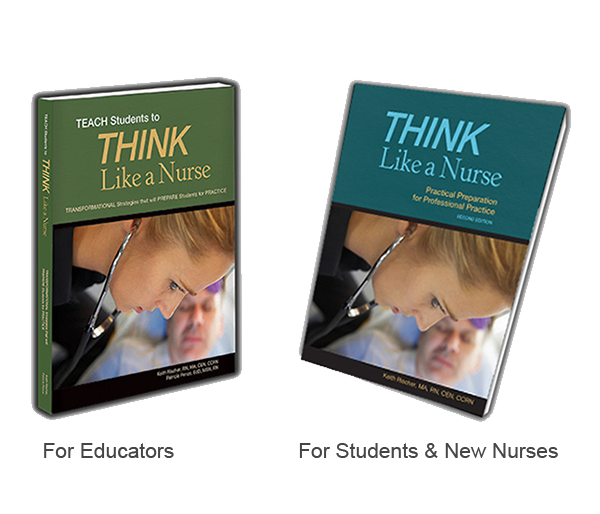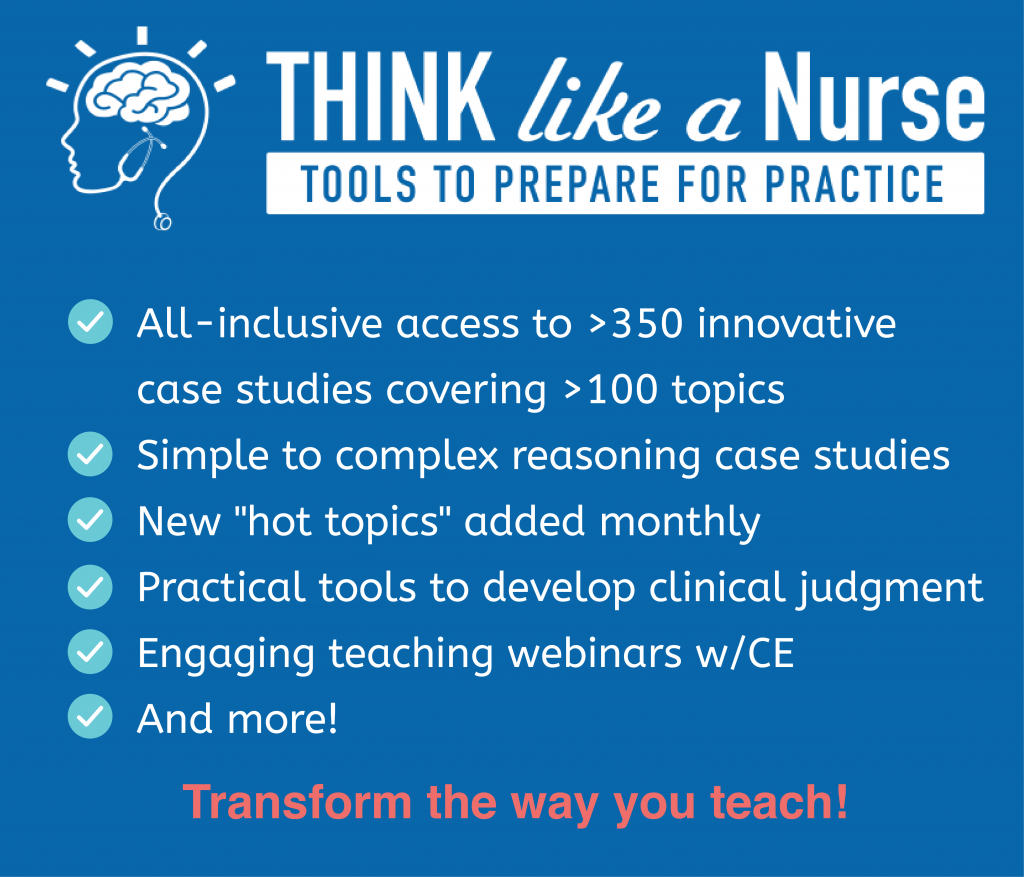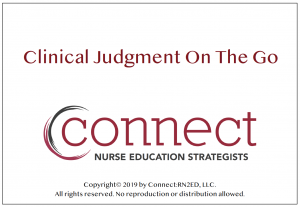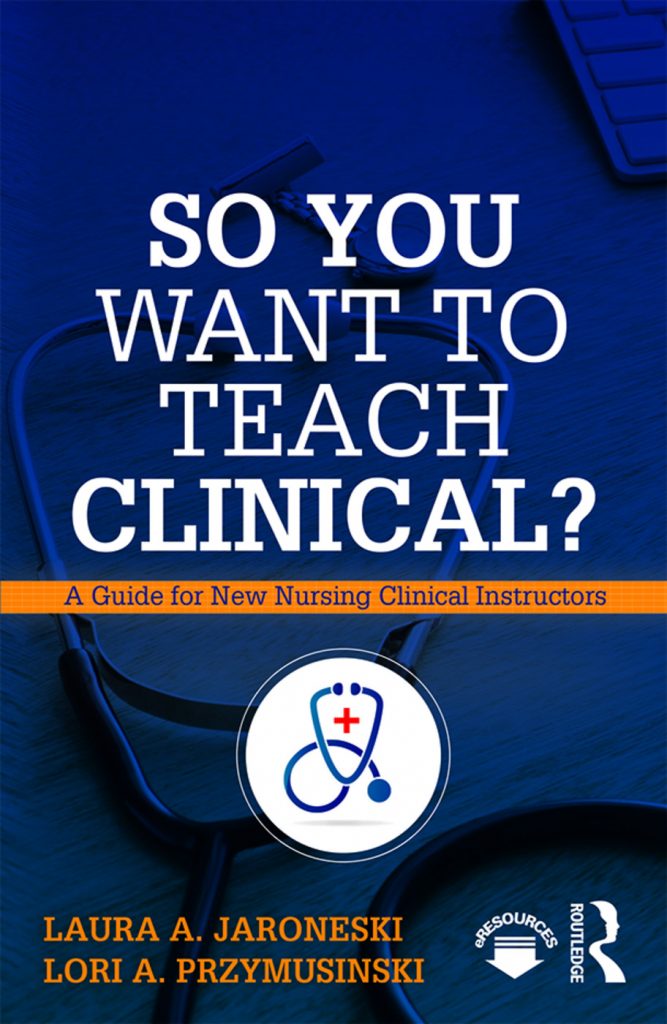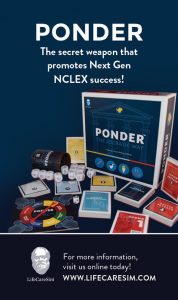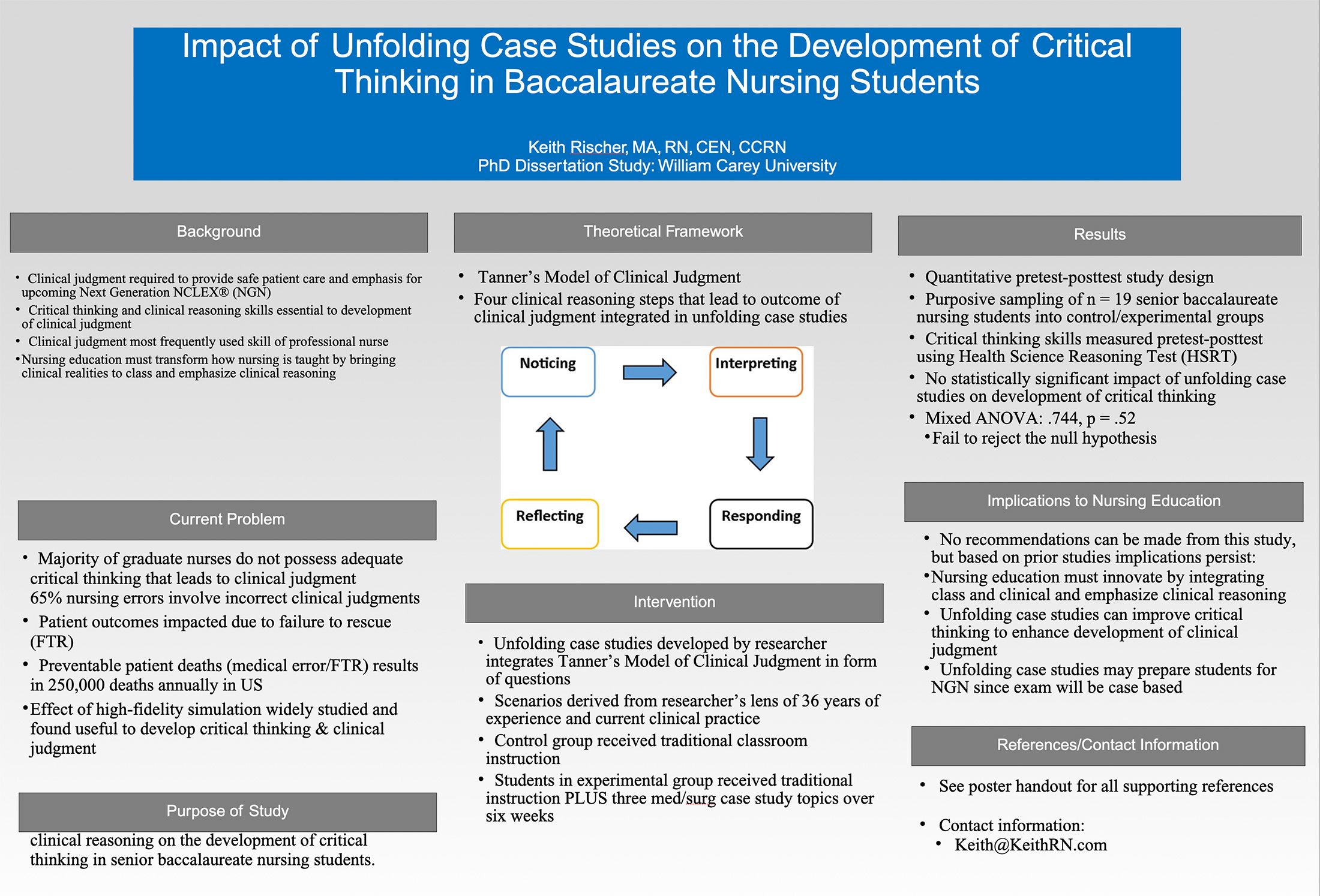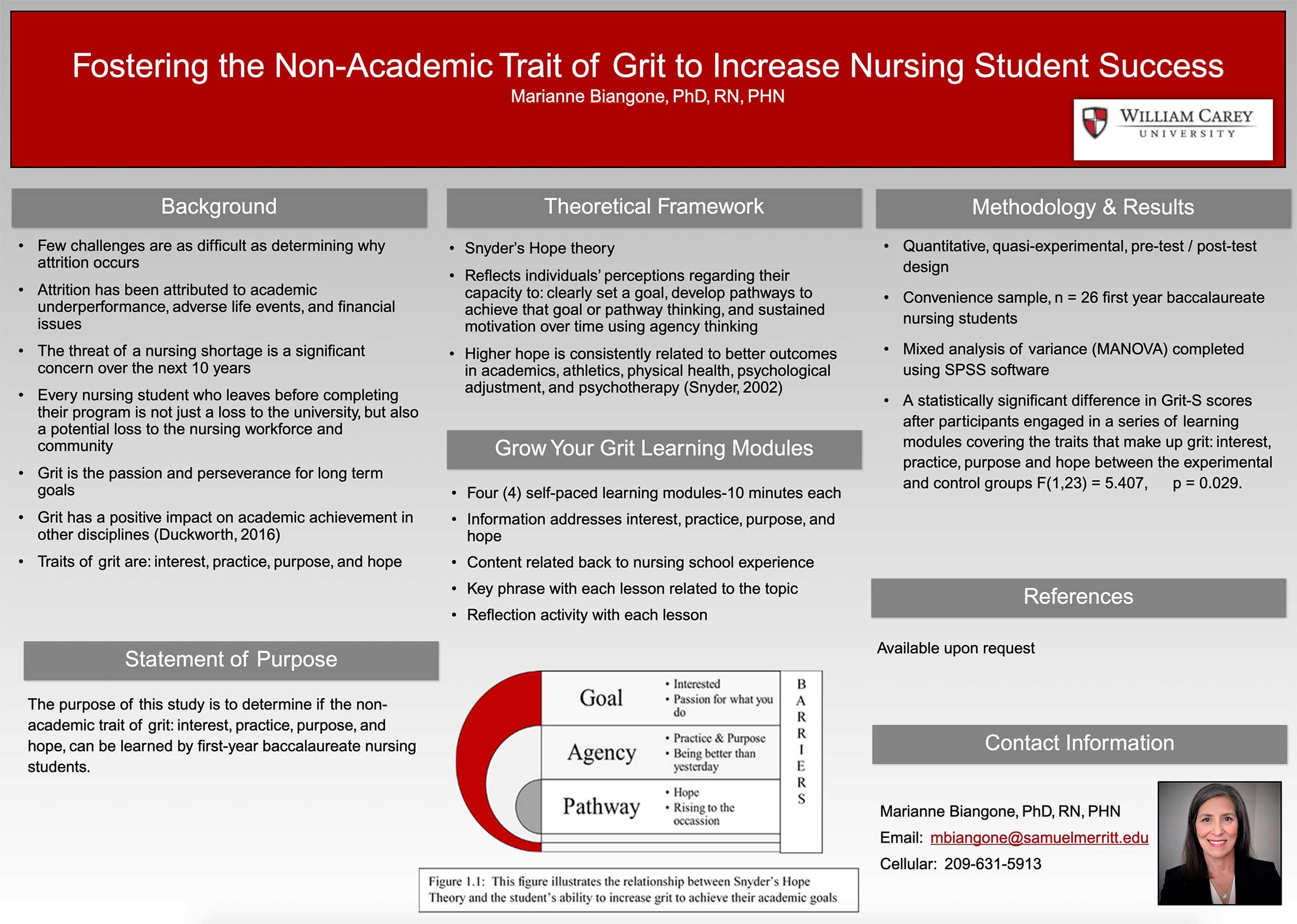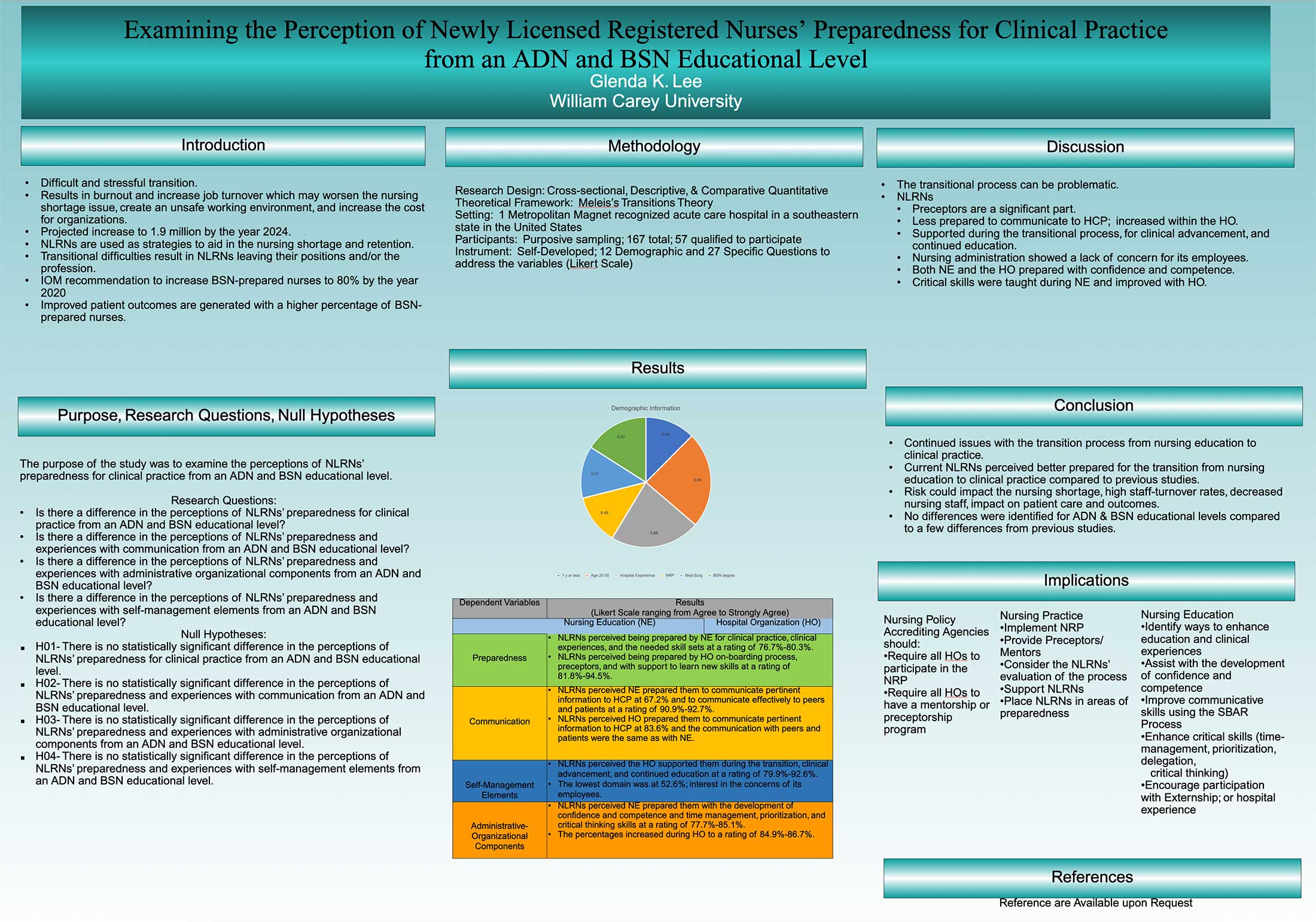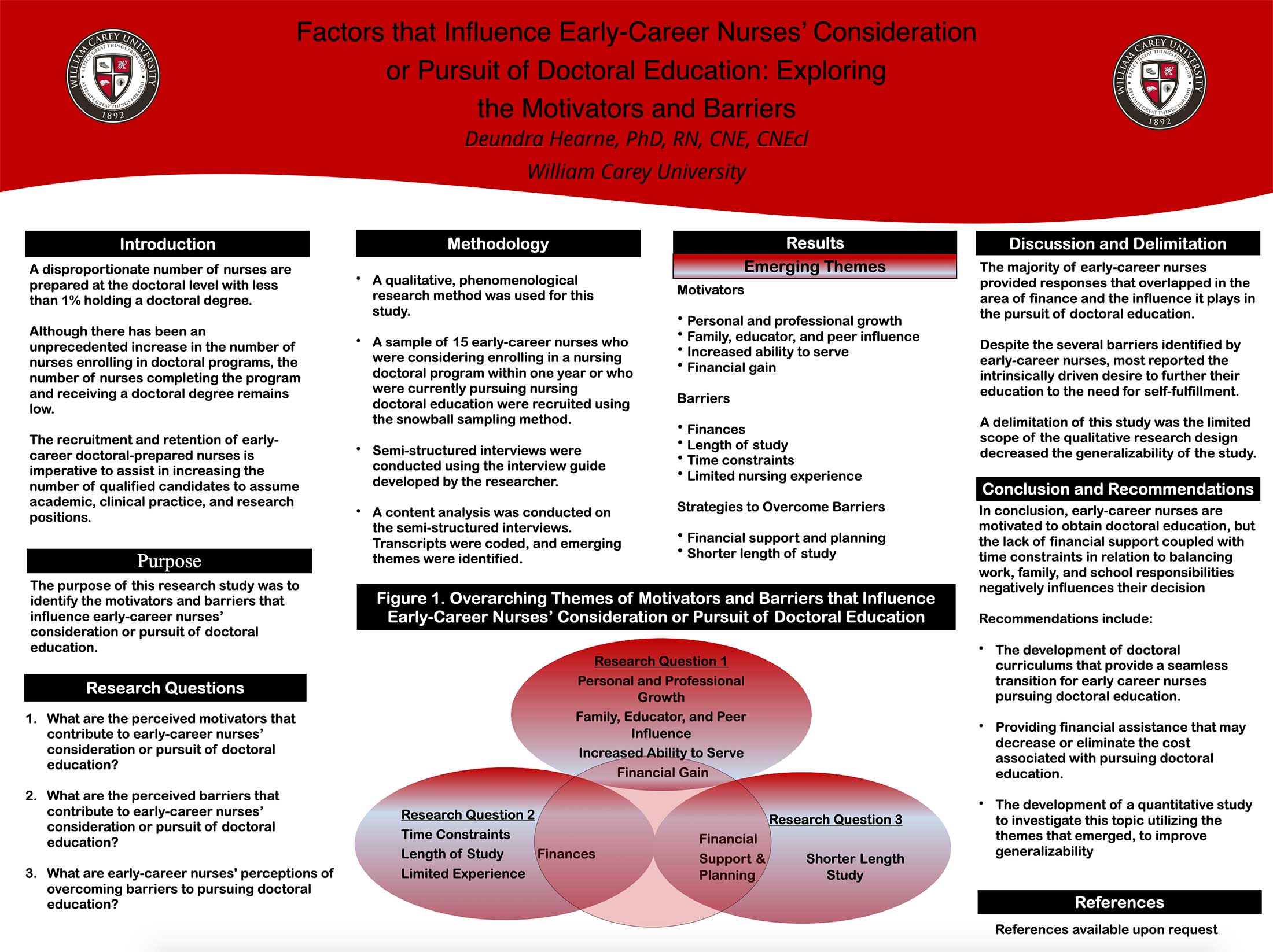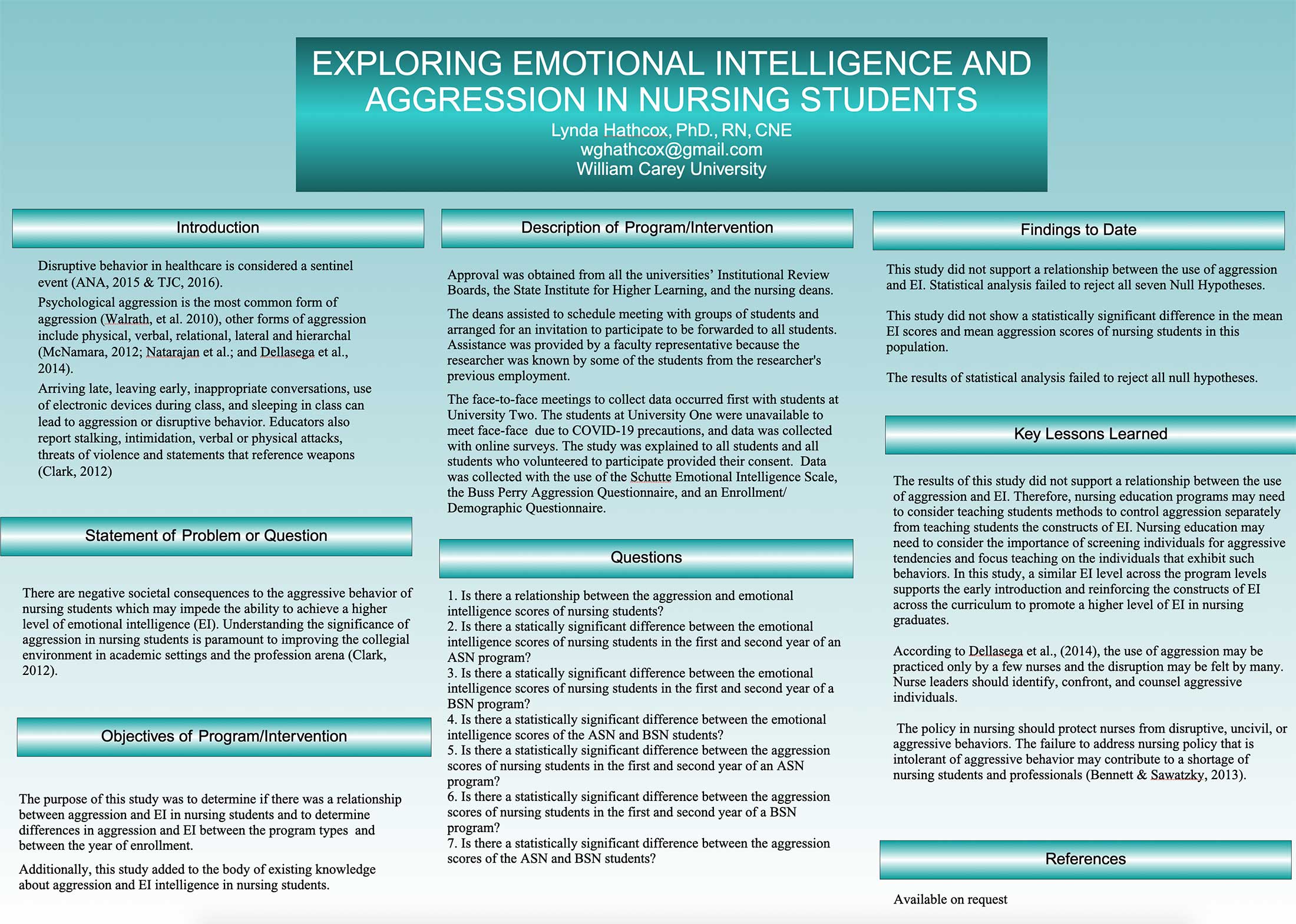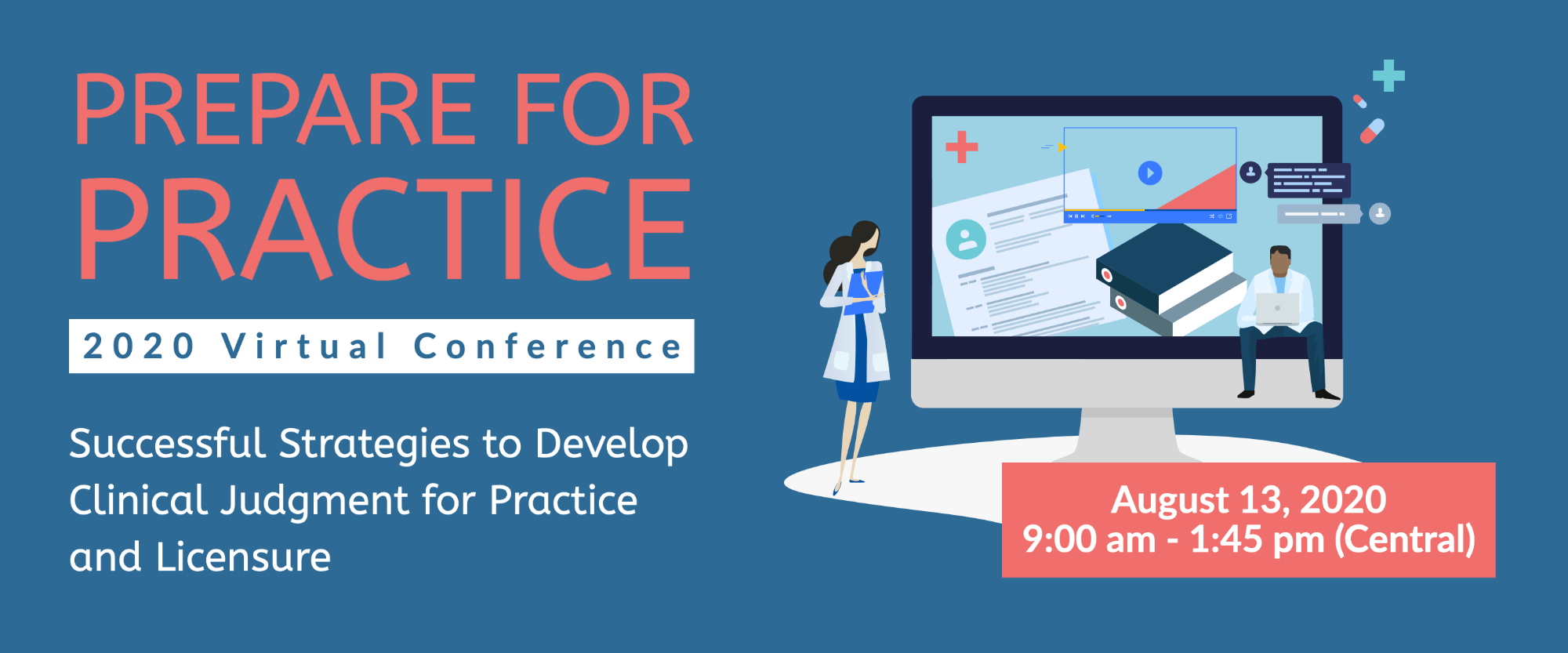
Tools to Transform Your Teaching
Each session includes tools to easily implement change in your content delivery and strengthen student learning.
Receive 4.0 contact hours
For attending the conference.
Unable to attend live? No worries.
A recording will be available for streaming one week after the conference!
Despite passing the NCLEX® licensure examination, most graduate nurses do not enter practice possessing the critical thinking skills that lead to correct clinical judgment. Adverse outcomes including patient death can occur as a result of failure to rescue when a nurse fails to recognize the meaning of subtle changes and act accordingly.
Nurse educators can better prepare students for practice by utilizing educational strategies that mirror the way experienced nurses think.
This half-day virtual conference will empower nurse educators to help students develop the clinical judgment required for safe practice and licensure.
Learn innovative best practice teaching strategies for both online and traditional settings with a focus on contextualizing learning to the bedside of patient care. Plus, find out about the latest research findings that educators can use to develop grit to improve retention and success in students.
Virtual Conference Pricing
$99
Think Like a Nurse Members.
$129
Groups of 3 or more.
$149
Individual registrations August 1-13.
Schedule (Central Standard Time)
8:30 am
Login begins
Visit assigned vendors and poster presenters in Zoom breakout rooms
8:50 – 9:00 am
Welcome and disclosures
9:00 – 10:00 am
Operationalizing the Science of Learning to Strengthen Student Understanding of Essential Content
Sally Kennedy, Ph.D., APRN, FNP, CNE
10:00 – 11:00 am
How to Create and Facilitate Case Studies that Engage: The Smorgasbord Method with Socratic Seasoning
Sally Kennedy, Ph.D., APRN, FNP, CNE
11:00 – 11:30 am
Break
Visit assigned vendors and poster presenters in Zoom breakout rooms
11:30 – 12:30 pm
Setting Students up for Success in Nursing Education
Marianne Biangone, Ph.D., PHN, RN
12:30 – 1:30 pm
How to Successfully Use Unfolding Case Studies to Develop Clinical Judgment in Class and Online
Keith Rischer, MA, RN, CEN, CCRN
1:30 – 1:45 pm
1:45-2:45 pm
Final Q&A/Closing
After conference-Visit with assigned vendors and poster presenters in Zoom breakout rooms
Sessions
Session #1:
Sally Kennedy, Ph.D., APRN, FNP, CNE
Operationalizing the Science of Learning to Support Teaching and Learning
Reading about educational theories and models often occurs in a linear and isolated fashion, leaving nurse educators at a loss how to apply them in their classroom or online.
In this session, select theories and models from the cognitive sciences will be presented to help the nurse educator understand how learning occurs — how bundling content in cases promotes active learning that leads to effective storage in cognitive structures as well as timely retrieval when cues are presented in clinical practice.
This content will be related to the four essential shifts for integration from the work of Benner, Sutphen, Leonard and Day (2010, 82-89) in Educating Nurses: A Call for Radical Transformation.
Outcomes
- Compare one’s current teaching strategies and practices with how students learn according to the current science of learning.
- Integrate the science of learning with the identified shifts in nursing education to promote student engagement and the achievement of learning outcomes.
Session #2:
Sally Kennedy, Ph.D., APRN, FNP, CNE
How to Create and Facilitate Case Studies that Engage: The Smorgasbord Method with Socratic Seasoning
Case studies can be thought of on a continuum from the simple, straightforward case requiring little critical thinking or clinical judgment to problem-based learning, with unfolding cases somewhere in the mix. Constructing cases for effective learning that spans specific content to the development of clinical judgment requires strategic planning with desired outcomes in mind. In this session, the 3C3R method of developing engaging and messy cases to promote multiple ways of thinking as well as teach content will be explored, examples provided, and the course content map briefly introduced. Effective facilitation strategies to keep the classroom or online discussion active and on track using the Socratic method effectively will also be explored.
Outcomes
- Evaluate the complexity of one’s case studies based on the understood value of including both relevant and irrelevant data to promote extraction of salient data and multiple ways of thinking.
- Use the 3C3R method to develop engaging and messy case studies.
- Appraise the facilitation method using Socratic-style questions to steer students toward achieving desired learning outcomes.
Session #3:
Marianne Biangone, PhD, RN, PHN
Setting Students up for Success in Nursing Education
Why do some students overcome difficult circumstances and excel while others don’t? Students face both personal and academic challenges during a nursing program. While they have many tools available in their student success toolkit, students often don’t know how to be creative and adapt in the face of challenges.
This session will discuss the characteristics that makeup grit, address how it differs from resilience, and strategies to develop grit in your students that increases retention and student success.
Outcomes
- Compare and contrast the differences between grit and resilience.
- Discuss how incorporating strategies to develop grit will lead to student success.
Session #4:
Keith Rischer, RN, MA, CEN, CCRN
How to Successfully Use Unfolding Case Studies to Develop Clinical Judgment in Class and Online
Unfolding case studies integrate principles of clinical reasoning, creating low-fidelity simulated experiences that provide practice in developing the clinical judgment required for safe practice and licensure.
This session will identify educational best practices to successfully integrate unfolding case studies into traditional and virtual settings to get your students thinking more like a nurse.
Outcomes
- Identify best practices to integrate unfolding case studies into the virtual and classroom settings.
- Compare how an unfolding case study can be utilized in the traditional classroom setting and adapted for the virtual environment.
Speakers

Sally Kennedy, Ph.D., APRN, FNP, CNE, is a lifelong learner committed to reforming online education. Dr. Kennedy has been a nurse for more than 40 years; the majority spent in clinical practice as a nurse practitioner. When she began teaching nurse practitioner students 20 years ago, she became passionate about using innovative teaching methods, including problem-based learning (PBL). Subsequently, she pursued a doctorate in education with a specialization in online instructional design.
Capping her career was the book publication Designing and Teaching Online Courses in Nursing (2017) that empowers nurse educators to bring innovation to the online setting to implement needed transformation in nursing education. She and her husband, a retired police officer, enjoy living in Colorado with their labradoodle puppy and her quarter horse.

Marianne Biangone, Ph.D., RN, PHN, has more than 28 years of nursing, clinical, managerial, and teaching experience. Dr. Biangone’s passion for nursing education is evident in her work to promote effective teaching by developing innovative strategies to improve student retention and NCLEX success by encouraging the growth of student grit.
Dr. Biangone has consulted with nursing programs across the country to assist faculty in implementing innovative strategies in the classroom and clinical setting and has shared her insights at national conferences on topics including implementation of standardized assessments, remediation, peer to peer mentoring programs, student wellness and diversity in nursing education.

Keith Rischer, MA, RN, CEN, CCRN, is the CEO of KeithRN, a company that has been developing educational support tools since 2012, and an author, nurse educator, and staff nurse with over 35 years of clinical experience in a wide variety of settings. Keith is a recognized authority on how students develop critical thinking and clinical reasoning to acquire the outcome of clinical judgment that is essential for safe clinical practice.
He has developed a practice-based framework of clinical reasoning that is integrated into innovative unfolding case studies posted on KeithRN.com and an all-inclusive resource membership for nurse educators Think Like a Nurse. Keith is the author of the student textbook Think like a Nurse and companion text for nurse educators Teach Students to Think Like a Nurse. Keith is passionate about empowering educators with educational best-practice strategies to better prepare students for practice and licensure.
Nursing Contact Hours
Participants will receive 4.0 contact hours for attending the entire virtual conference.
This nursing continuing professional development activity was approved by the Montana Nurses Association, an accredited approver with distinction by the American Nurses Credentialing Center’s Commission on Accreditation.
Conflict of Interest/Disclosures: There is no conflict of interest for anyone in a position to control the content of this activity.
Successful Completion
- Provide valid email address at registration to ensure communication
- Sign-in via Zoom with a full name before the start of the virtual conference and attend all sessions.
- Right after the conference email sent with a link to online survey and link to fill out continuing education (CE) form.
- Once CE form submitted, will receive PDF certificate immediately by email
Handouts, Evaluation & Certificates
- Handouts and link to access the Zoom event will be sent by email one week before the conference
- BE CERTAIN YOU ARE GETTING OUR EMAILS. Check your junk or spam box.
- Contact us via the information below if not receiving confirmation or email with handout links.
Contact Information: Contact Kimberly Carter at Service@KeithRN.com if you have any questions regarding registration or discounted departmental membership registration of 3 or more faculty.
Sponsors
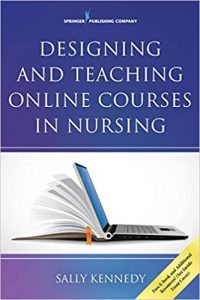 Be sure to check out Dr. Kennedy’s practical book that can strengthen both online and traditional nursing education!
Be sure to check out Dr. Kennedy’s practical book that can strengthen both online and traditional nursing education!
Designing and Teaching Online Courses in Nursing…
Offers practical information on every aspect of teaching an online course. Foundational educational theories and concepts, including new insights from cognitive psychology, are explained and linked in such a way that operationalizing them during course design makes good sense.
KEY FEATURES:
- Apply the science of learning to strengthen student learning in any setting
- Integrates the paradigm shifts from Educating Nurses: A Call for Radical Transformation
- Includes best practices in online education and the latest research to utilize best-practices
- Provides online worksheets to guide each step of the process of designing and teaching a course online
Connect:RN2ED is a full-service nurse education team that is women-owned, women-led, and nurse-empowered.Our team of three current, clinically-relevant nurse educators provides affordable, relationship-based consulting to all degree levels of nursing education programs including:
- Curriculum design/implementation; program evaluation and assessment;
- Accreditation/approval preparation (self-studies and mock visits)
- Faculty development
- Student success initiatives
- Next Generation NCLEX preparation
- NCLEX test item-writing (including NGN)
- Practical solutions for learner-centered curriculum delivery.
Conference Special!
Clinical Judgment On the Go
Purchase Today! $25.00
Prepare your students for the NextGen NCLEX® and bedside safety with 52 unique activities focused on clinical judgment.
All activities can be used across the curriculum, are designated for any setting, and are identified by the appropriate QSEN and NCLEX® Client Needs Category.
In Fall, 2020, additional “Clinical Judgment On the Go” resources for nursing specialties are coming!
Bonus: Individuals ordering before August 1oth will receive a code that can be applied towards new releases.
Teaching nursing students in a clinical setting with patients differs greatly from teaching in a classroom. It can be a daunting task if one is not prepared and mentored. So Your Want to Teach Clinical: A Guide for New Nursing Clinical Instructors provides a concise and accessible guide for nursing instructors leading students in the healthcare agency for the first time, as well as for experienced educators who are interested in exploring new teaching strategies.
In addition, the book discusses some of the more complex issues surrounding the role of the clinical instructor such as accountability for nursing care, documentation, and medication administration carried out by students.
The book features numerous forms and charts to assist in organizing and managing the teaching experience, as well as situational scenarios to help prepare instructors for unique situations that arise during the clinical experience.
Written by authors with extensive experience in clinical care and teaching, this book will be an invaluable guide for all clinical nursing instructors, both novice and experienced.
By Authors, Laura A. Jaroneski and
Lori A. Przymusinski
23.95 paperback
$21.56 e-book
Write exams up to 75% faster!

Intellistem Writer® Online, a Breakthrough in Exam Writing
We know test writing is just one part of your job, and we think it takes too much time.
Take back your time so you can spend more time doing what you love – teaching and mentoring students.
We’ve written over 800 reusable starter stems for you. All you have to do is change the client’s condition, diagnosis, or concept alteration.
Benefits
- Simplifies exam development
- Reduces development time by up to 75%
- Defeats the leaked test bank problem
- Helps novice instructors build exams like experts
- Fosters development of better exams
- Helps meet accreditation standards
Features
- Pool of over 800 pre-aligned starter stems mapped to:
- NCLEX Client Needs
- NLN End of Program Competencies
- Nursing Process
- AACN Essentials
- QSEN Competencies
- Cognitive Level (96% of the stems are at application level or higher)
- Automatic exam blueprinting
- Facilitates faculty exam collaboration
- Tag questions to your unit and/or course objectives
- Exportable answer key w/ alignments and tagged objectives
- Easily, export exams to:
- Blackboard
- Brightspace / D2L
- Canvas
- Moodle
- Examsoft
LifeCare Sim…Ponder: The Socratic Way
LifeCareSim is a company where critical thinking is our game and home of Ponder (TM) The Socratic Way. Teach students skills necessary for Next Generation NCLEX such as recognizing and analyzing cues, formulating and prioritizing hypotheses, planning, and evaluation.
We provide unique games that create unpredictable, constantly evolving patient case scenarios with problems that must be solved throughout the game. Excellent teaching tools for nurse educators in schools and hospitals alike.
Conference Special!
Save $125 on the purchase of a Ponder game using code: summersale20 applied at checkout.
Join our mailing list for a chance to win a free game!
Call for Posters!
If you have implemented a study with implications to innovate student learning or teaching, submit a poster abstract no later than August 1st. Each abstract will be peer-reviewed and participants chosen by August 6th to share your poster before the conference, during breaks, and afterward in a Zoom breakout room.
Don’t delay! Since there is a limited number of poster discussion groups, acceptance of your submission may close before the deadline. Poster presenters need to register for the conference to present.
Posters
Impact of Unfolding Case Studies on the Development of Critical Thinking in Baccalaureate Nursing Students
Abstract
The purpose of this study was to determine the impact of unfolding case studies on critical thinking. Nineteen senior baccalaureate nursing students were assigned by purposive sampling into the control or experimental group. Critical thinking was measured by the Health Sciences Reasoning Test (HSRT), which was administered pre and post-test to both groups.
The control group (n =10) received traditional instruction over eight weeks, while the experimental group (n = 9) received traditional instruction plus an additional intervention of three weekly one-hour faculty facilitated instruction and classroom discussion using unfolding case studies that integrated clinical reasoning. Data analysis indicated that there was no statistically significant difference (p = .52) between the two groups in critical thinking scores.
The small sample size may have been a contributing factor to this finding. Additional studies are needed to explore further if unfolding case studies that emphasize clinical reasoning can impact the development of critical thinking.
Researcher
Keith Rischer, MA, RN, CEN, CCRN
Contact
Email: Keith@KeithRN.com
Fostering the Non-Academic Traits of Grit to Increase Nursing Student Success
Abstract
In nursing education, there are few challenges as elusive as determining why attrition occurs. Attrition has been attributed to factors such as academic underperformance, adverse life events, and financial issues. It is imperative to identify additional tools for students to increase the opportunity for program success despite his or her challenges. Grit is passion and perseverance for long-term goals. Grit has had a positive impact on academic achievement and the need is present for research on the ability to foster the development of the characteristics that make up grit in undergraduate nursing students.
The purpose of this study is to determine if the non-academic characteristics of grit: interest, practice, purpose, and hope, can be learned by first-year baccalaureate nursing students. The theoretical framework guiding this research is Snyder’s hope theory. Hope theory reflects individuals’ perceptions regarding their ability to set a goal, develop ways to achieve that goal, and stay motivated over time. A convenience sample of 26 first-year nursing students enrolled in a baccalaureate nursing program in the spring 2020 semester was used. A quantitative, quasi-experimental, pre-test-post-test design was the research model.
Data was gathered and analyzed using a mixed analysis of variance design. Results indicated a statistically significant difference in Grit-S scores after participants engaged in a series of learning modules covering the traits that makeup grit, interest, practice, purpose, and hope between the experimental and control groups F(1,23) = 5.407, p = 0.029. There was no statistically significant difference in the change in Grit-S scores between first-time and repeat nursing students F(1, 11) = .609, p = 0.452.
Researcher
Marianne Biangone, Ph.D., RN, PHN
Contact
Email: mbiangone@samuelmerritt.edu
Examining the Perception of Newly Licensed Registered Nurses’ Preparedness for Clinical Practice from an ADN and BSN Educational Level
Abstract
The transition process from nursing education to clinical practice has proven to be a difficult and stressful process. Problems with the transition process could create negative responses for the Newly Licensed Registered Nurse (NLRN) and for the hospital organization.
This descriptive, comparative cross-sectional quantitative study examined the perception of NLRNs’ preparedness for clinical practice from an ADN and BSN Educational Level. The Meleis Transition Theory provided the framework for this study. The study took place at one Magnet recognized acute care hospital in a southeastern state of the United States. A total of 57 NLRNs qualified to participate in the study.
The majority of NLRNs perceived being prepared for clinical practice from nursing education and 81.8% perceived the hospital-on-boarding process helped with preparedness. The NLRNs perceived themselves to be less prepared to effectively communicate pertinent information to HCP from nursing education (67.2%) compared to hospital organization at 83.6%.
The NLRNs perceived being supported by hospital administration at 80% for the transition process, 79.9% for clinical advancement, and 92.6% for continued education. The NLRNs perceived equal preparedness with confidence and competence and critical developmental skills from nursing education and hospital organization.
The data analysis revealed areas the NLRNs perceived less prepared for than others from nursing education and the hospital organization. However, the results did not provide any statistically significant findings differentiating ADN and BSN educational levels.
Researcher
Glenda K. Lee, Ph.D., RN-BC
Contact: gleemlee@aol.com
Factors that Influence Early-Career Nurses’ Consideration or Pursuit of Doctoral Education: Exploring the Motivators and Barriers
Abstract
The Institute of Medicine’s 2011 The Future of Nursing report recommended doubling the number of nurses with a doctorate by 2020. While the number of doctoral prepared nurses has increased, the disproportionate number of nurses who hold a doctoral degree remains an issue for the nursing profession. In addition, nurses are pursuing doctoral education later in their careers, limiting the time they have to contribute to the profession.
The purpose of this research study was to identify the motivators and barriers that influence early-career nurses’ consideration or pursuit of doctoral education. Deci and Ryan’s Self-Determination Theory was used as the framework for this study. A qualitative, phenomenological research method was used to conduct 15 semi-structured face-to-face and video conference interviews of early-career nurses who were considering enrolling in a nursing doctoral program within 1 year or who were currently pursuing nursing doctoral education.
For the purpose of this study, an early-career nurse was defined as an RN who has obtained initial licensure no longer than 10 years before the study. Primary themes for motivators were personal and professional growth, family, educator, and peer influence, increased ability to serve, and financial gain.
Primary themes for barriers were time constraints, length of study, limited experience, and finances. Primary themes for strategies to alleviate barriers were financial support and planning and shorter length of study.
Researcher
Deundra Hearne, PhD, RN, CNE, CNEcl
Contact: deundrahearne@yahoo.com
Emotional Intelligence and Aggression in Nursing Students
Abstract
The purpose of this study was to determine if there is a relationship between aggression and emotional intelligence (EI) in nursing students and to determine differences in aggression and emotional intelligence in terms of the year in school and program type. The constructs of Bandura’s Cognitive Learning Theory and Emotional Intelligence Theory provided the conceptual framework for this study. The design for this study was correlational and comparative. The design provided the quantitative measure of the sample’s EI scores and aggression scores.
The individual total scores were statistically analyzed to determine if a correlation existed between emotional intelligence and aggression. The mean scores were compared between the two nursing education program types and within the programs according to the year of enrollment.
The results of this study did not indicate a high level of aggression in the sample. The results of this study did not show a low level of EI in the sample. The study did not produce statistically significant results to indicate a relationship or a difference between nursing students’ EI scores and aggression scores among the program type and year in the program.
Therefore, the results failed to reject all seven null hypotheses. However, the study adds insight into the importance of improving the collegial environment in academic and clinical areas. The study adds to the body of nursing knowledge concerning the presence of disruptive behavior and aggression in nursing education and the nursing profession.
Researcher
Lynda Gayle Hathcox, Ph.D., RN
Contact:
Email: LHathcox370782@student.wmcarey.edu


